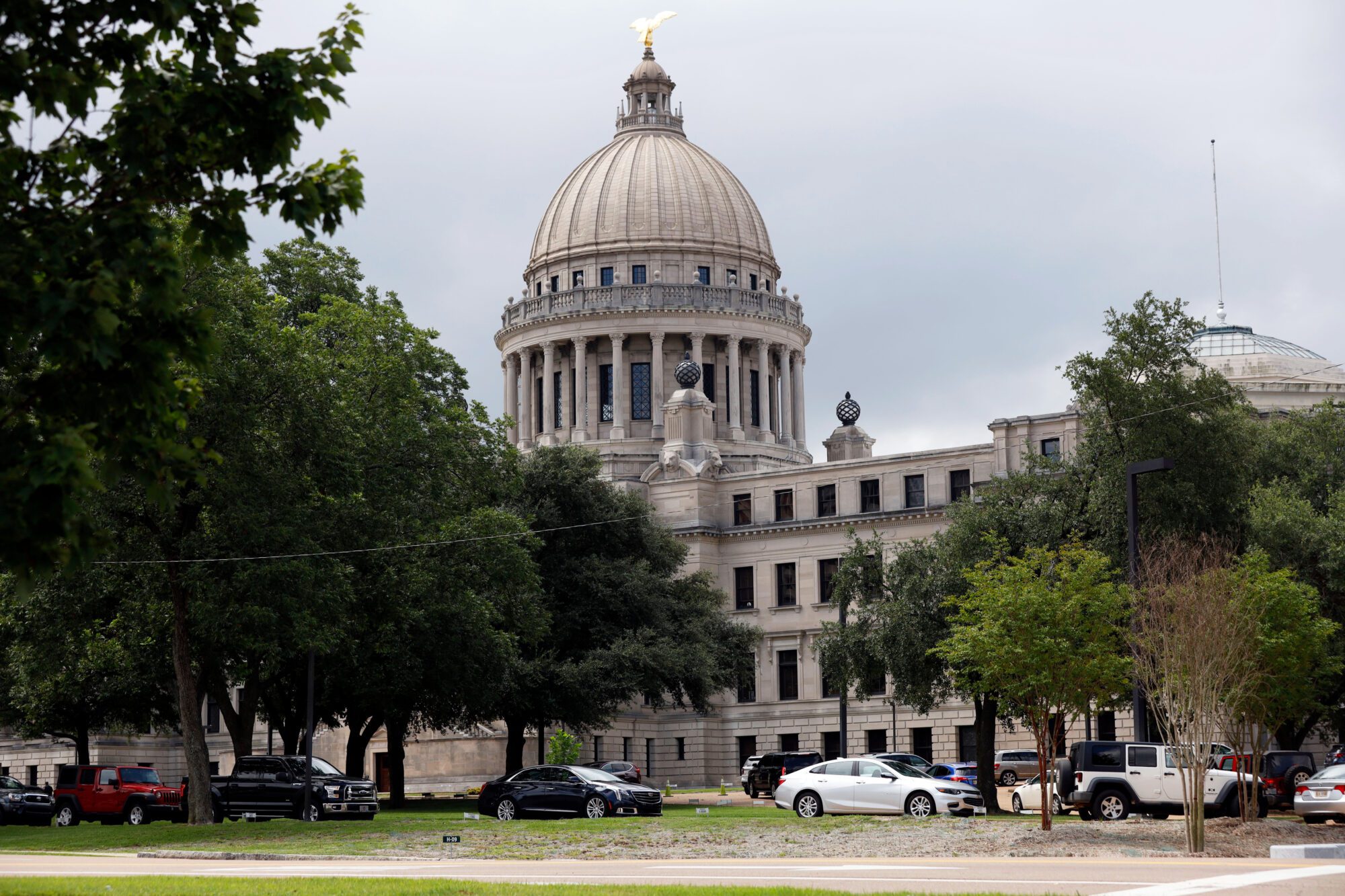
L to R: Speaker Jason White and Lt. Governor Delbert Hosemann (Photos by Jeremy Pittari | Magnolia Tribune)
- Senators expressed frustration with the House of Representatives leaving Jackson early Thursday morning before both chambers finished their work.
Mississippi is closer to having a new state budget after the state Senate finalized work on over $7 billion in spending bills Thursday afternoon. The House gaveled out just after midnight having finished their work in the special session.
The $7.135 billion Fiscal Year 2026 budget is up slightly from the prior year’s $7.035 billion budget.
Over the two-day special session, lawmakers said a chunk of the increase is due to health insurance increases and other benefits, such as state retirement contributions.
Republican leaders described the budget as “conservative,” adding it was a necessity during uncertain financial times.
While the majority of members voted for the 100-plus spending bills, which fund core government functions, several members of the Democratic Caucus voted present or in opposition to the bills, protesting the quick pace at which the legislation was crafted and the secrecy of the negotiations prior to the special session.
Most budget lines saw small increases, with law enforcement agencies seemingly benefiting the most in additional funding.
The Attorney General’s Office and the Department of Corrections both received multi-million-dollar increases in revenue. The AG’s Office received more than $6.4 million in funding over the Legislative Budget Recommendation of nearly $40 million. In total, the AG’s Office received $46,396,192 for FY 2026.
State Senator Brice Wiggins (R), Senate Judiciary A Committee chairman, explained that the funding increase will offset costs associated with helping victims of abuse.
More than $3 million will be distributed to the Children’s Advocacy Centers of Mississippi to conduct forensic interviews. Additionally, the office is authorized to retain up to $50,000 for administrative costs. Another $2.5 million will go towards the Victims of Human Trafficking and Commercial Sexual Exploitation Fund.
Another line item sends funds to assessing the feasibility and administrative cost associated with the registration and disclosure of Foreign Third-Party Litigation Funding from countries adversarial to the United States. When asked what the Foreign Third-Party Litigation Funding was and if it was needed, Senator Wiggins explained that foreign countries are sponsoring litigation in the U.S. court system.
While the AG’s funding was not controversial, many senators on both sides of the aisle, voted against a bill to fund the state’s Office of Public Defender. Objections rose over a $600,000-plus pilot program to bring public defenders to seven rural Mississippi counties. Many senators voiced opposition to the pilot program’s cost.
André de Gruy, State Defender with the Office of State Public Defender, said his office is pleased with the vote, even with strong opposition.
“I think some of the senators who voted no were voting for reasons other than the pilot project. I do think some of the questions raised are valid, for example, the time we will have to set the pilot up and start getting evidence in support is short. In an ideal world, we would have 3 years’ funding, but that’s not how our budget process works,” de Gruy said.
The Mississippi Department of Corrections will see its coffers increase by tens of millions of dollars in FY 2026. Its Legislative Budget Recommendation was set at $418 million, but after the markup process, the department budget came in at just short of $469 million. During the floor presentation, Senator Wiggins explained contract increases were the reason for the hefty jump.
The state recently entered a new medical contract, which costs $12 million more than the prior agreement. Wiggins defended the cost by saying the new contract is an improvement.
“We do have some performance metrics in place. I haven’t spoken to the agency, but it’s my understanding we are making progress,” he said.
In addition, medical records are now digitally stored on a management system, having been stored on paper previously, Wiggins added.
The Department of Corrections saw increases in the per diem to regional jails, costing $4.4 million, as well as an increase in a food contract that jumped by $50 million. Additionally, the department is spending $690,000 on new monitoring software.
State Senator Jeremy England (R) rose and let his feelings be known about the House dropping nearly 50 spending bills on the Senate before leaving town. The House, he said, has “a lack of leadership” and needs to “show us respect, like we show them.”
“Should we pass bad legislation, because they went home?” asked State Senator Benjamin Suber (R), who voted against the measure.
Senators went on to express frustration with the House of Representatives leaving Jackson early Thursday morning, as there was an issue of a line item for Methodist Rehab Center for $1.9 million that the Senate insisted on. At issue was the allocation to the center and the provider tax.
House Speaker Jason White (R) said his members were not against it, “but our House attorneys were concerned it could jeopardize our other hospital federal money.”
“We brought it to their attention last night, decided to proceed. If an issue, [the] governor can/will veto,” White said.
Governor Tate Reeves (R) did share early Thursday afternoon that there are “a few minor items that are concerning in a few bills.” Senators believe Reeves will line-item veto portions of the legislation to clear up the issue.
White said those “minor items” are normal errors that occur every session. He explained that both sides can give unanimous consent to correct the numbers.
“We got the consent from our members last night,” he said.
As for the contention that arose between the chambers on the State Auditor’s budget, the House’s amendment to restore the Senate’s cuts remained in place as the Senate concurred on the amended bill.
All of the legislation is now headed to the governor’s desk for his signature ahead of the start of the new fiscal year which begins July 1.










